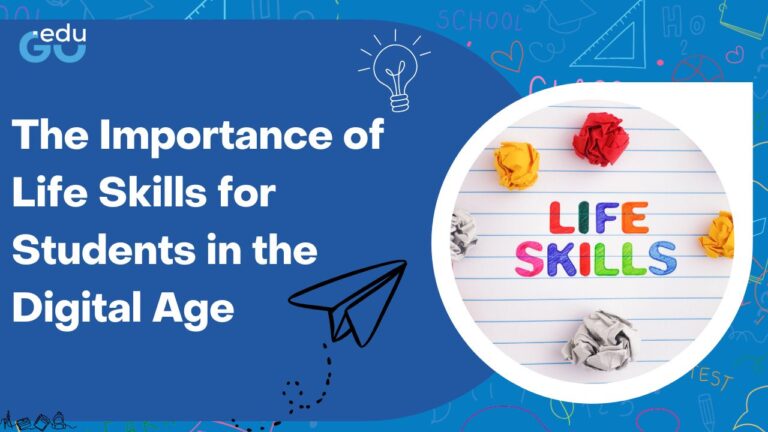As a parent, you want your child to excel in every aspect of life, and education serves as the cornerstone for their future success. While many factors contribute to a child’s academic achievements, the importance of reading books stands out as a fundamental element.
Reading is crucial in shaping your child’s language skills, critical thinking abilities, and overall academic performance. In this article, we’ll delve into why the importance of reading books is vital to your child’s education and how you can encourage this transformative habit.
The Benefits of Reading Books

Reading books opens doors to a world of knowledge and personal growth for children. Here’s how:
1. Improved Language Skills
Books are an excellent resource for building a child’s vocabulary, grammar, and sentence structure. When children read, they are exposed to a rich variety of words and language patterns that naturally enhance their communication skills. Whether through picture books, chapter stories, or informational texts, reading helps children articulate thoughts clearly and effectively.
2. Enhanced Critical Thinking Skills
Every story invites children to explore complex ideas, analyze characters’ actions, and predict outcomes. This process fosters critical thinking and problem-solving skills that are essential not only in academics but also in daily life. Reading non-fiction books further deepens analytical skills as children learn to assess facts and form reasoned conclusions.
3. Increased Empathy and Understanding
Books provide a unique opportunity for children to experience different cultures, perspectives, and emotions. As they follow characters through challenges and triumphs, they develop empathy and a deeper understanding of others. These qualities are invaluable for building meaningful relationships and navigating diverse social environments.
4. Better Academic Performance
Children who read regularly tend to excel in school. Reading strengthens comprehension, boosts vocabulary, and sharpens focus—skills that are critical for success across subjects. Moreover, the habit of reading books instills discipline and a love for learning, paving the way for academic excellence.
The Importance of Reading Books in Different Stages of Education
The importance of reading books is not confined to a specific age or grade. It plays an essential role throughout a child’s educational journey.
1. Preschool: Planting the Seeds of Literacy
Reading aloud to preschoolers helps them recognize sounds, words, and sentence patterns. Picture books spark their imagination and introduce them to storytelling. This early exposure not only builds foundational language skills but also fosters curiosity and a love for books.
2. Elementary School: Building Core Skills
In elementary school, children begin to read independently. Books during this stage help develop reading fluency, comprehension, and vocabulary. Fiction stories captivate their imagination, while informational texts provide knowledge and teach them to extract key details.
3. Middle School: Expanding Analytical Abilities
Middle school brings more complex narratives and informational content. Reading at this stage sharpens analytical thinking, as students learn to interpret themes, understand subtext, and evaluate arguments. Exposure to diverse genres also broadens their worldview and encourages critical evaluation of ideas.
4. High School: Preparing for the Future
In high school, reading takes on a more academic focus. Students engage with advanced texts that require deep analysis and critical thinking. Beyond academics, books help them explore global issues, understand historical events, and prepare for the challenges of college-level coursework.
Tips for Encouraging Your Child to Read Books

As a parent, your support and involvement can significantly influence your child’s attitude toward reading. Here are some practical ways to inspire your child to develop a love for books:
1. Create a Reading Routine
Establish a regular time each day for reading, whether it’s during breakfast, after school, or before bedtime. Consistency helps make reading a natural part of your child’s daily life.
2. Make Reading Fun
Choose books that align with your child’s interests. If they love adventure, mystery, or animals, find books in those genres. Reading together and discussing characters or plot twists adds an interactive and enjoyable element to the experience.
3. Provide Access to Books
Make books readily available at home. Create a small library with books suited to their age and interests. Visiting the local library or bookstore can also be an exciting way for your child to explore new reading material. Digital options like e-readers and audiobooks can add variety and convenience.
4. Be a Reading Role Model
Children often imitate their parents. When they see you reading regularly, discussing books, or sharing your favorite stories, they are more likely to adopt the same habit. Set an example by demonstrating the joy and value of reading.
Conclusion
The importance of reading books in your child’s education is immeasurable. From building essential language and critical thinking skills to fostering empathy and academic success, reading is a powerful tool that shapes a child’s mind and character.
As a parent, you hold the key to making reading an integral and enjoyable part of your child’s life. By encouraging regular reading, selecting engaging books, and modeling a love for literature, you can instill a habit that will benefit your child for years to come.
Invest in your child’s future today—open the door to a world of possibilities through the power of reading.










